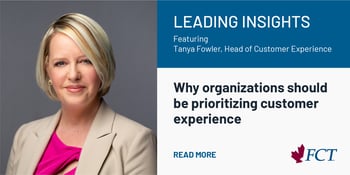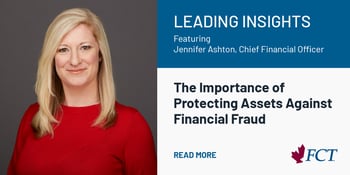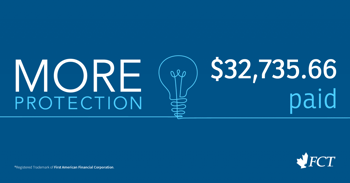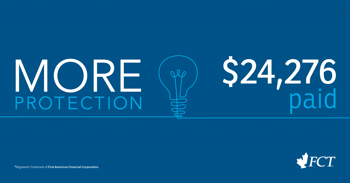
As a homeowner, protecting your property is a top priority. Title insurance provides you peace of mind by helping prevent sudden and expensive losses. But how does it work? This guide to understanding title insurance will help answer the most frequently asked questions, and equip you with the knowledge you need to make informed choices about how to protect your homeownership.
What is title insurance?
Title insurance protects property owners as well as lenders against financial losses from issues around a property’s ownership—its title. One difference between title insurance and other types, like home insurance, is that most of the risks it covers are from past events, not potential future problems.
Purchasing title insurance usually happens as part of closing on a property, and can provide protection if there are delays in the property’s title registration. It can even help your transaction close more smoothly and on time by covering certain known risks. If you didn’t close using title insurance, you can still purchase a policy later.
Own your home but don’t have title insurance? An Existing Homeowner Policy can help.
The difference between owner's and lender's title insurance
Title insurance protects both the owner of a property, as well as the mortgage lender who helped them get that property. Homeowners and lending professionals have to worry about different risks on real estate transactions, so they get separate title insurance policies:
- Your owner's title insurance protects your clear ownership and ability to sell your property against future legal claims on the property's title, whether from past issues like tax arrears, or future events like title fraud.
- Lender's title insurance secures their financial interest in the property up to the registered amount of the mortgage, protecting them from risks that include title defects, mortgage unenforceability and losses due to title fraud.
Always check your closing documents to make sure your property has title insurance for both you and your lender. If you only see one policy in your files, you might not be covered. Reach out to your legal professional, who can help you get protected.
What covered risks does title insurance protect against?
Title insurance covers three main types of issues: title, off-title and transactional. Coverage varies from province to province, but you can always check with FCT to make sure you understand where you are and aren’t covered.
Title issues
Problems with your property’s clear ownership. When you try to sell, a defective title can make it impossible to legally transfer ownership of the property until it’s resolved.
- Encumbrance: a title defect where someone other than you has a claim to all or part of your property.
- Lien: an outside claim against your property’s title to secure or collect on a debt—a mortgage is the most common lien on a property. Tax liens and builders’ liens can cause significant losses for new homeowners, since liens stay with the property itself.
Off-title issues
Issues that often can’t be seen from a title search. They often revolve around how your property can be used, or who has access to it.
- Encroachments: when an improvement on your property crosses into someone else’s land.
- Easement: a common type of encroachment risk. An easement is an agreement to let someone use part of your property without owning it. If an improvement on your property encroaches onto an easement, you could be forced to remove it.
- Unpermitted work by a previous owner: if a municipality finds that previous work on your property was done without a permit, you can be forced, as the current owner, to complete the work with proper permits, You may even be ordered to remove structures that were built without permits.
- Zoning issues: land being used in a way that breaks zoning by-laws. Sometimes, those by-laws can change, so you can buy a property that violates zoning without realizing it. Municipalities can force expensive changes or even demolitions to bring properties into compliance.
Transactional issues
Problems with the transfer of a title. They include procedural risks, like lack of corporate authority, but the main transactional risk is title fraud, which comes in two main forms:
- Someone steals your identity to get a mortgage on your property in their name. That fraudulent mortgage can keep you from selling or remortgaging the property, and getting your title back can cost you tens of thousands in investigative and legal fees.
- Someone steals your identity to sell your property to someone else. Fraudsters often gain property access via short or long-term rental, using it to show the property to prospective buyers. The innocent buyer is left on the hook for the mortgage, while the fraudster disappears with the proceeds.
How can title insurance protect against fraud?
Title fraud is on the rise in Canada. FCT’s experts work hard to detect and prevent fraud, and the dollar amount of suspicious transactions we’ve identified each year has risen dramatically. When fraudsters do succeed, title insurance is one of the best protections you can have in place.
If a fraudster takes out a mortgage on your property in your name, you won’t be able to take more equity out of your home, or sell it, until your title is restored. That can cost tens of thousands in legal fees. The duty to defend included in your owner’s title insurance policy covers the costs of restoring your title.
The duty to defend also means that you don’t have to navigate the process alone. FCT’s experts will be there with you each step of the way, even retaining counsel and going to court on your behalf, if it becomes necessary.
How much does title insurance cost?
Title insurance uses a one-time premium, not a monthly or annual premium like most other types of insurance. The amount will depend on the purchase price and location of the property, approximately $150–$800 in the case of title insurance from FCT.
Premiums can vary by provider, but so can coverage. Many insurance companies focus their claims process on finding reasons to deny claims—FCT’s policy is to look for the best way to make our insureds whole.
Is title insurance worth it?
Yes, title insurance is always a worthwhile investment. For a low upfront cost, it can cover potentially massive losses and provides peace of mind for as long as you have an interest in the property. A title insurance policy protects against costly and unpredictable risks, and in some scenarios is the only recourse you may have.
Do I need title insurance for a condo?
Absolutely. A condo unit still has a title, and is vulnerable to fraud. Some risks, such as survey issues, are less likely than in a single-family home, but other risks are actually worse in a condo.
- Condo corporations can issue mandatory fees called special assessments (also called special levies) to cover shared expenses like repairs. An improperly communicated special assessment can be a nasty surprise waiting for you when you take possession, and could cost thousands.
- The title to a condo may include elements outside the unit itself, like a storage locker or a parking spot. Not every condo title includes these elements. But if it does, and you lose access to something included in the title, title insurance could be your only option to resolve the issue.
How long is title insurance good for?
Title insurance coverage lasts different lengths of time depending on the type and provider. With most insurers, the policy provides coverage for as long as the insured retains an interest in the property.
Residential owner’s title insurance from FCT lasts forever, so you can still be covered for issues that come up after you sell. Its coverage is transferrable to your heirs if they inherit the property, as well as spouses and children if you transfer the property to them.
Property ownership can come with expensive risks, but it doesn’t have to. Protect yourself and your heirs by making sure you have a title insurance policy from FCT in place before you close on your property purchase.
Insurance by FCT Insurance Company Ltd. Services by First Canadian Title Company Limited. The services company does not provide insurance products. This material is intended to provide general information only. For specific coverage and exclusions, refer to the applicable policy. Copies are available upon request. Insurance brokerage services by FCT Insurance Services Inc. Some products/services may vary by province. Prices and products/services offered are subject to change without notice.
®Registered Trademark of First American Financial Corporation.








































-min.jpg?width=350&height=216&name=title-fraud-homeowner-protection-blog%20(1)-min.jpg)

-min-1.jpg?width=350&height=216&name=home-theft-tile-fraud-toronto-blog%20(3)-min-1.jpg)

-min.jpg?width=350&height=216&name=FCT-Leading-Insights-Michael-LeBlanc-ENG_blog%20(1)-min.jpg)
.jpg?width=350&height=216&name=title-insurance-bc-alberta-homeowners-blog%20(1).jpg)








-min.jpg?width=350&height=216&name=errors-and-omissions-ontario-real-estate-law-risk-blog%20(1)-min.jpg)













-min.jpg?width=350&height=216&name=BC-parking-claim-blog%20(1)-min.jpg)







-min.jpg?width=350&height=216&name=PropTalk-what-every-home-owner-needs-to-know-Blog%20(2)-min.jpg)

-min.jpg?width=350&height=216&name=Three-signs-your-clients...-Blog%20(1)-min.jpg)

















